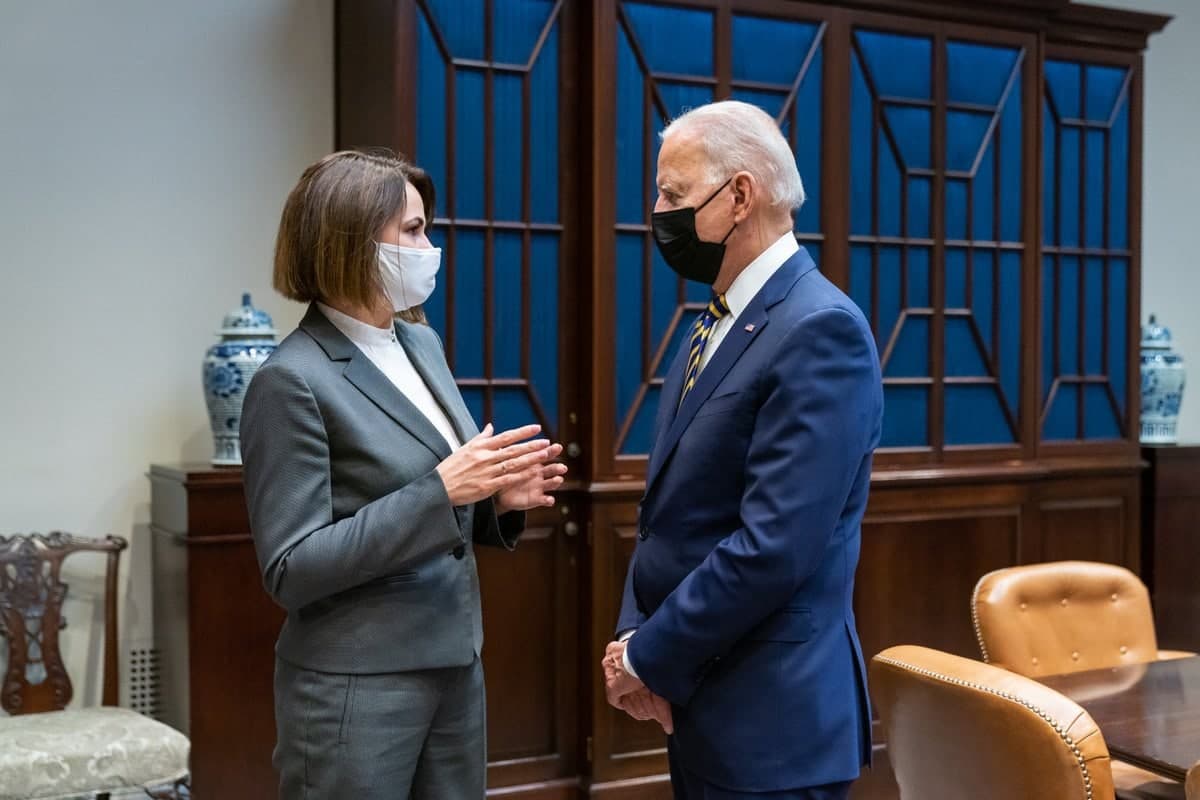Sviatlana Tsikhanouskaya makes a breakthrough in relations with the United States as civil society develops online services in response to repression
 The situation has not changed
The situation has not changed

Sviatlana Tsikhanouskaya has confirmed her status as the leader of democratic Belarus and strengthened the influence of the democratic forces on Belarusian-American relations. Civil society continues to generate new initiatives and build online infrastructure in response to repression.
Last week, Sviatlana Tsikhanouskaya met with President Joe Biden and several high-ranking U.S. officials, promoting sanctions against the Lukashenka regime and increased pressure on Minsk from Washington. The Biden administration is considering the possibility of introducing a new sanctions package against the current Belarusian leadership.
As a result, Lukashenka was prompted to respond, and the topic of Tsikhanouskaya’s visit to the United States prevailed in the state media. As compared to Lukashenka, who had very few contacts with the heads of foreign states, Sviatlana Tsikhanouskaya continues to strengthen her positions in the international arena.
The leader of democratic Belarus held meetings with the diaspora and motivated them to engage in projects to strengthen civil society and facilitate the democratisation of Belarus. There is no unity among the diaspora, however, some opposition leaders from the previous wave of political emigration continue to criticise Tsikhanouskaya’s actions, creating tension within the diaspora. To some extent, this weakens the overall diaspora’s potential.
In the face of harsh repressions from the security forces and forced emigration, many civil society activists use online tools in organizing their activities, such as the eHealth online medical consultations or the Free Union Online platform for self-organization.
Independent media organisations, whose infrastructure inside Belarus was attacked by the security forces, continue to resume operations from abroad. Registered political parties have adopted a ‘wait and see’ policy and suspended their public activity due to fears of repression and the lack of understanding of what would guarantee the absence of persecution by the security forces.
NGOs and think tanks are also revising their approaches and strategies amid security forces’ attempts to defeat civil society and liquidate about two hundred public organizations.
In the future, the activities of political organizations and activists in Belarus will be restricted by repressions, however, civil society and independent media will continue to adapt and use online services to meet their goals and reach out to their audiences.
Subscribe to our newsletter




Situation in Belarus
Constitutional referendum: main consequences


 Video
Video
How to count the political prisoners: are the new criteria needed?


 Video
Video
Paternalism In Decline, Belarusian Euroscepticism, And The Influence Of Russia


 Video
Video












